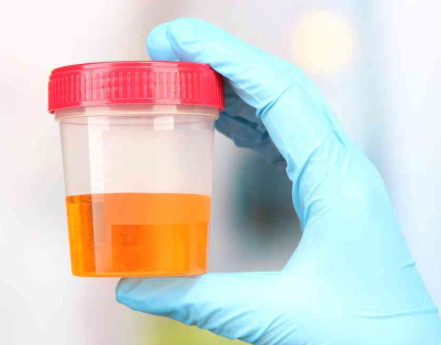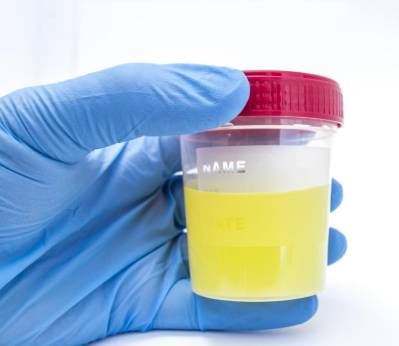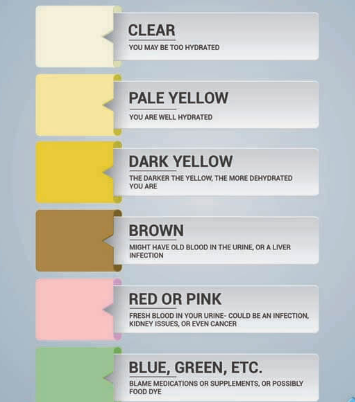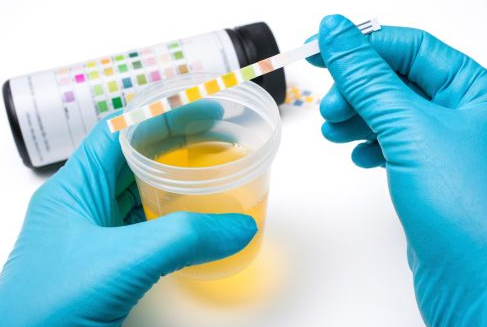Smelly or urine with strong odor may be a sign of something that is not normal, although it is not always a disease. It can be a short-term phenomenon that appears as a result of some foods, medication or drinks. Moreover, some underlying medical conditions can result to the same problem.
Sweet Smelling Urine Causes
What are the major reasons why urine smells sweet? If you realize a sweet or fruity aroma while urinating, you should get worried because it is not a normal condition. There are different reasons why this may happen and we will some of them in this discussion. The smell is usually as a result of the body expelling some chemicals into the urine. The chemicals may include bacteria, glucose, or in some cases amino acids. If it happens that you produce sweet smelling urine, which can be a reason for you to contact your medical provider immediately.
Usually, the smell of your urine may vary from being sweet to a sharp foul or stinky smell. All this depends on the chemical or waste concentration in it. Urine that is less concentrated or that of a normal healthy person does not have any smell. In most cases, sweet smelling urine is usually a sign of diabetes or uncontrolled diabetes. When excess amount of glucose or ketone is leaked in the urine it usually has a sweet smell. However, not only diabetes is the reason why you have a sweet smelling urine, but there are much more conditions that are associated with the symptom.
Other symptoms associated with sweet smell in urine
The major underlying condition for sweet smell in urine is uncontrolled diabetes. Therefore, there are other symptoms that will accompany a sweet smell in urine such as:
- Increased thirst that is not easily quenched
- Increased hunger due to loss of excess glucose
- Frequent passage of urine
- Increased perspiration
- Loss of weight even if you eat enough
- Weakness and tiredness
- In case of minor wounds, they may take long to heal
- Impaired vision in case retina is affected.
Causes of sweet smelling urine
- Urinary tract infection
This is a very common disease that affects the urinary system. The infection usually occurs after the bacteria have travelled up to the urethra – the tube that allows urine to flow from your bladder to the outside of the body. Women are mostly affected with this condition because of their biological structure – thus the bacteria can easily travel up to the urethra.
Sweet smelling urine is one of the major signs of UTI. The reason behind the sweet smell is because bacteria causing the infection are dispelled in the urine. Some other associated symptoms for this condition are frequent urge to pee and a burning sensation during urination.
The condition is usually diagnosed by use of urinalysis. The doctor may prescribe some pain relievers and antibiotics that may be acquired in the drug stores. They may help to bring down pain associated by the condition and finally heal the infection.
- Hyperglycemia and diabetes
Hyperglycemia is a condition whereby you develop increased blood sugar levels. The high blood sugar level is usually a sign of either diabetes type 1 or diabetes type 2. Diabetes is usually the major cause of sweet smelling urine that ca be confused with a smell of a pilled fruit. The reason behind the sweet smell is because the body is trying to get rid of excess sugar from the blood and therefore this glucose is disposed through the urine.
If you have not been diagnosed for diabetes, this could be the first sign that you may be suffering from the disease. Diabetes is usually diagnosed through blood test or urinalysis process. If you know that you have diabetes and realize that you produce urine that smells sweet, then you are not managing your condition.
Treatment for diabetes usually depends on the type that you are suffering from. You can monitor your blood sugar levels in a day and insulin shots may help to bring the condition under control.
- Diabetic ketoacidosis
DKA is a severe condition that results from uncontrolled diabetes, and is commonly associated with sweet smelling urine. In most cases a person develop diabetic ketoacidosis after finding out that he/she has diabetes in late stages. The condition occurs when the body doesn’t have enough sugar and therefore has to burn available fats to produce energy.
During the fat burning process, ketones are released which build up in the blood and raise its acidic level. This may result to blood poisoning which may cause the affected person to go into a coma and death thereafter f not treated in time with insulin therapy in an emergency room.
DKA is usually common in people suffering from diabetes type 1. You doctor may test your urine or ketone testing strips may be carried out to determine if you are suffering from the condition.
- Foetor hepaticus
It is a condition that results in breath smelling sweet or musty. The sweet smell usually affect the breath but can as well cause urine smell. Some people refer to this smell as “breath of the dead.” Usually, foetor hepaticus is a common side effect for liver disease and portal hypertension.
Treatment for this condition may vary according to what caused it. The treatment may involve the use of drugs and even surgery.
- Maple syrup urine disease
The condition is also referred to as chain ketoaciduria clinically. This is a genetic disorder that rarely occurs. For the condition to occur, the patient must have inherited a mutated gene from each of her parents to develop the disease. The disease is said to stop the body from breaking down the amino acids, which are very necessary for the body to carry out its functions.
The disease is diagnosed in babies by used of urinalysis, testing of the genetics and newborn screening methods. Apart from sweet smelling urine, additional symptoms may include:
- Poor appetite
- Urine may as well smell like caramel or maple syrup
- Poor growth and development
If this condition is left untreated can result in brain damage and even lead the patient into a coma. The short term treatment for this condition is the use of amino acid supplements using an intravenous line (IV). On the other hand, long term treatment may include a dietary plan which is closely monitored by a dietician.
- Foods, drinks and medications
Other minor causes of sweet smelling urine may include the type of medicine you took recently or food and even drinks. There are some medicines that are very strong in that they may even extend their side effect to the urine the user produce. In this case, if the medicine had a nice smell, then expect the smell of your urine to be sweet as well.
This may also happen to the food and fluids we drink.
There are some foods when we take that have an effect on the smell of urine produced. However, drinking much of water is said to dilute the concentration of the urine. Therefore in case your water intake is low, expect to feel sweet smell in urine that correspond to the type of food or drink you had last night. This is very common with some alcohols that have sweet aromas.
Sudden onset of Sweet Smelling Urine
A sudden onset of a sweet smell in urine is simply the rapid development of urine that has a sweet smell. When the sweet smell in urine is so sudden, then you have to have a look at the type of food, medication or drink you had recently. If the smell is closely related to any of them, then you have no reason to worry as the condition is very temporary.
You may just increase your water intake so as to make sure that your urine is not highly concentrated.
If the sudden onset of sweet smelling urine is associated with other additional symptoms like the ones we have discussed above, you have a reason to run to your doctor for blood test or urinalysis to determine the underlying condition for the sudden smell.
Urine Smells sweet not Diabetes
A normal healthy person, who consumes enough water in a given day, generally does not produce urine that has a strong smell of any kind. Strong smell from urine is usually an indication of something that is not usual, although it is not always a disease as we shared above.
- We said that even some of the medications, foods, drinks we take can have an impact on your urine smell. Therefore, not only diabetes can cause sweet smelling urine but also what we take.
- Also, we have talked about urinary tract infection. This is a common disease that can affect anyone and some of its symptoms we have shared above including a sweet smell in urine that originate from the deposits of bacteria that cause the disease in the urine.
The color, smell and the contents of your urine can produce essential information both to you and your doctor when it comes to what is going on in your body. In ancient times, having a look at the patient’s urine was the method used by physicians in determining the type of condition one was suffering from, before other tests were carried out.
Urine is a body waste product that is made up of breakdown products from food, drinks, medications, ecological impurities, cosmetics, bacteria, and by products from the metabolic process. Therefore, it produces more information about what is going own in the body. Therefore, if you are sure that you do not suffer from diabetes or any condition related to blood sugar levels issues, you may have to blame on the two things that we have given you on this topic for the sweet smelling urine.
Sweet Smelling Urine Pregnancy
Every pregnancy is different as per the symptoms related to it and the things the pregnant woman may undergo during the period. The smell of the urine is just one of the many symptoms a pregnant woman may notice while in the gestation period. Some of the changes that may occur in urine in different mothers across the board may include:
- Change in color of the urine
- Change in frequency of urination
- Change in smell of the urine
- Change in content of the urine
In this context we are going to look at the change in smell of the urine in pregnant mothers.
Change in smell in pregnancy
We have been sharing about sweet smelling urine and therefore we have to look at it when it comes to pregnant women. During pregnancy, the smell of the urine is not always sweet but to some women, they may explain it as a foul smell. Foul smell in pregnant women is not something to worry about as this is because, there is an increased kidneys functions and this may change the way urine smell during this period.
- However, sweet smell in urine in pregnancy could be due to ammonia overpowering in late pregnancy, as well as dehydration. This is why it is advised to take enough water during this period. To add on that, pregnant women at all stages are more prone to urinary tract infections which we said is one of the causes of smelly urine.
- Sweet smelling urine in pregnancy can also be caused by a condition known as gestational diabetes. This condition usually happens in pregnancy when the body suddenly undergoes surges in glucose levels. The increased sugar levels in the blood may be released through urine thereby making it to produce a sweet smell. Gestational diabetes usually disappears after delivery.
What to do when Urine Smells like Sugar Puffs
Although the underlying conditions for sweet smelling urine differ, diagnosis may just include urinalysis and blood sugar test, though examination may involve ascertaining some of the symptoms the patient states out. The doctor however may have several ideas in the mind regarding the cause of sweet smell; the tests may reveal the actual condition.
You can also carry out a urine test on your own. For example, urine test strips used for diagnosing ketoacidosis as sold in drug stores in the market. In case you suspect UTI to be the culprit for your condition, medication for the condition can be acquired over the counter – though have the condition tested first to be sure.
Treatments for sweet smelling urine
Treatments available for sweet smell in urine majorly depend on the underlying condition causing the symptom. There are some simple treatments that include drinking enough water in case the smell is caused by the over-concentration of your urine.
- Treatment for UTI and foetor hepaticus
In case you are suffering from urinary tract infection, your medical provider may advise on the use of antibiotics and other prescription medications such as pain relievers to speed up the healing process. Also breath of the dead is treated by the use of such medications.
Additionally, some sources say that drinking much water frequently may help to flash out bacteria causing UTI. This because more water increase urination frequency, and the more the urination, the more the bacteria is disposed through urine.
- Treatment for diabetes
Diabetes on the other hand can be controlled but cannot be treated. There are numerous modern medications that are used to control diabetes. In this case you doctor can help you monitor the level of your blood sugar and advice on the best medication to use at that specific level.
Insulin therapy is the best and common treatment used to control blood sugar levels in people with diabetes
Alternatively, you may follow some of the following home remedies while dealing with blood sugar control:
- Use of java palm fruit (syzygium jambolium) – this is a fruit that is purple in color, which is very popular for its excellent work in controlling blood sugar levels. You just have to extract the fruit juice from the pulp and consume it regularly. Alternatively you can crush dried seeds of the fruit to affine powder, which is then mixed with water and taken once daily.
- Use of fenugreek – this ca as well helps in controlling blood sugar. You just need to soak around 15 seeds of this remedy in water overnight and consume them in the morning.
- Use of bitter gourd juice – the juice is said to contain insulin properties. Therefore, drinking the juice regularly helps in dealing with diabetes by controlling the sugar levels effectively.
- Following diabetic diet regularly. This involve, eating meals with less sugar and more proteins to control calories. It is advised to eat a small meal six times a day than large meals 3 times a day.
- Eat more of vegetables and salads
- Exercise is important too
- Stop excess fasting as it may cause ketonuria and sweet smelling urine with other more symptoms.
- Keep away from stress and mental strain by exercising yoga regularly and meditation.
- Treatment for maple syrup
In this case, treatment may involve managing your diet and use of amino acid supplements treats maple syrup disease.
Prevention for sweet smelling urine
There are numerous ways you can generally use to prevent smelly urine.
To prevent UTI, do the following:
- Urinate before and after sex
- Wipe yourself from front to back after visiting wash rooms
- Avoid douching and vaginal sprays
- Read the side effects of birth controls
To prevent foetor hepaticus:
- Avoid drinking alcohol in excess
- Take beta-blockers
More references
- Sweet smelling urine: https://www.healthline.com/health/sweet-
- Causes of sudden onset of sweet smelling urine: http://www.rightdiagnosis.com/sym/sudden_onset_of_sweet_smelling_urine.htm




